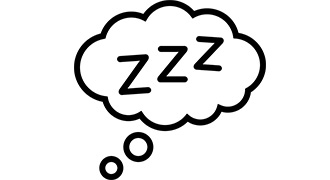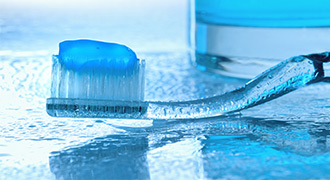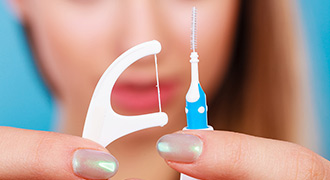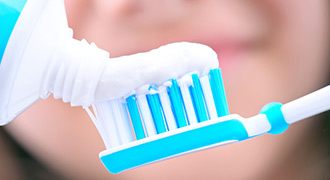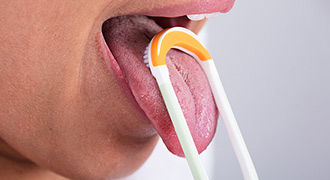
What you need to know about TMJ, TMD, and Jaw Pain
TMJ (Temporomandibular joint) and muscle disorders are some of the most common yet least understood conditions affecting the face and mouth today. This often diverse grouping of related conditions and symptoms is often collectively referred to by experts and patients as TMJ or TMJD, Temporomandibular Joint Disorder.
The temporomandibular joints (TMJs) themselves, which in reality consist of two joints connecting the jawbone with the skull, are essential to many daily functions including speaking and eating. Together with an intricate arrangement of muscles, ligaments, discs, and bones, the TMJ allows you to chew your food, articulate your thoughts, and smile. When this critical joint connection breaks down, is damaged via injuries such as whiplash, or is in some way unbalanced, a whole host of problems often arise including jaw pain.
TMD (Temporomandibular Joint Disorder)
Temporomandibular Joint Disorder (TMD) is quite widespread. Scientists estimate that as many as 10 million Americans may suffer from some form of the disorder, which appears to be more prevalent amongst women than in men.
That’s a lot of Americans who may have TMD, and many may not even know it. Sometimes, the symptoms of TMD may be mild, such as a slight popping noise, jaw pain, and a dull ache when opening and closing the mouth. Other times, TMD can be utterly debilitating.
TMD Symptoms
The primary symptoms of TMD are pain or tenderness in the facial regions, particularly when the temporomandibular joints are located as well as pain in the neck or behind the ears.
Other symptoms include frequent headaches, neck aches, and in some cases, tooth sensitivity. Typically, opening and closing the mouth or chewing food may initiate or aggravate the pain which indicates that the TMJ is involved.
While pain is a significant indicator of TMD, it is not necessarily present in all cases. It is often difficult to pin down the exact nature of TMD and disorders affecting the temporomandibular joints contributes to the relative lack of knowledge about what causes it and how to best treat it. In fact, the modern view of TMD is that it is a cluster of related disorders as opposed to a single, consistently-defined disease. For the purpose of this article, we will refer to TMD as the entire cluster of associated symptoms and disorders that affect the temporomandibular joints (TMJs).
5 Signs You Might Have TMD
Facial Pain
Pain or tenderness in the face, particularly near the temporomandibular joints (TMJ).
Popping Noise
Popping noise when opening and closing your mouth or when chewing food.
Lock Jaw
Lock-jaw, or a jaw that gets stuck in place when either opened or closed.
Facial Swelling
Redness and swelling in the face.
Facial Fatigue
Tiredness and fatigue in the muscles of the face.
TMD Treatment | TMJ Treatment
If you suspect you may be suffering from TMD, or at least exhibiting the symptoms of TMD, the first step is to get a diagnosis from a doctor or Prosthodontists like Dr. Reza Khazaie who is trained to detect and diagnose disorders of the face, mouth, and jaws.
At Willow Pass Dental Care we can help you with TMJ treatment. Our highly experienced dental professionals can help you determine whether or not you have TMD and recommend a course of action to treat TMD and other related maxillofacial disorders effectively.
As with any suspicion of illness, the first step is to get a professional opinion and diagnosis before entering into treatment.
Because the causes, triggers, and mechanics of TMD are not well understood, there is no widely accepted path for treatment. Worse still, the symptoms of TMJ are often the same as other common afflictions such as toothaches and ear infections. The lack of consensus makes your choice of dental professionals incredibly important. Choose medical professionals with experience, accreditation, and a history of satisfactory results.
TMJ Treatment: Unlocking Lockjaw
Depending on the severity of the TMD and your needs there are many recommended methods for treating, controlling, and even curing TMD ranging from simple self-care practices such as applying an ice pack to something extreme like comprehensive jaw repositioning surgery.
TMD Treatment & TMJ Treatment Ideas
Self-Care
Simple but effective self-care techniques that can help alleviate the symptoms of TMD include eating soft foods to avoid overworking your jaw muscles, applying an ice pack to reduce local inflammation and avoiding physically stressful jaw movements such as yelling or yawning.
For stress-induced TMD, learning how to manage and control daily stress can be very helpful. Those with stress-related TMD may find that a lifestyle change, such as working fewer hours or participating in stress-reducing activities such as exercise can be curative.
Self-care regimens for those with any type of TMD will often involve jaw stretches and exercises prescribed by a physical therapist or prosthodontist designed to relax facial muscles and improve jaw movement.
Those with TMD may find that it is triggered by Bruxism, or teeth clenching and can often be prescribed a mouth guard-like device to help minimize grinding and clenching of teeth.

Painkillers
For those diagnosed with TMD, self-care is oftentimes only the first step and insufficient for managing the pain associated with the disorder (i.e., jaw pain, facial pain, headache, facial swelling). Short-term, over-the-counter solutions such Ibuprofen may offer a brief respite. However, TMD is often a recurring, chronic condition for which the long-term use of over-the-counter medicines may not be recommended.
If deemed necessary, your prosthodontist can prescribe stronger pain or anti-inflammatory medications, muscle relaxants, and even anti-depressants in some cases to help ease and manage the symptoms causing the pain. Pain-killers should not be mistaken for a cure and are only one component of a holistic treatment regimen.
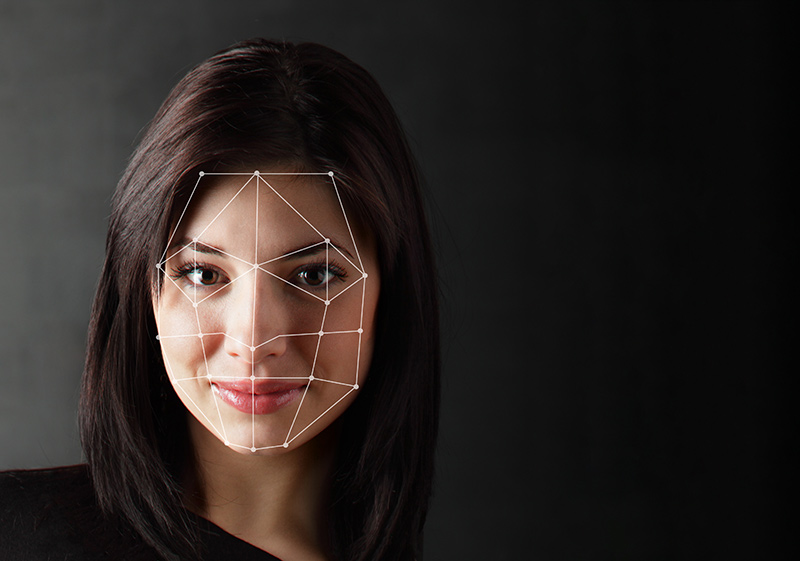
Botox
Research indicates that Botox injections, typically employed for cosmetic purposes, can be used to treat TMD. Although Botox-based treatments are currently experimental, anecdotal evidence seems to suggest good results for patients.
Botox injections relieve TMD and other temporomandibular disorders by partially paralyzing the muscles that interact with the temporomandibular joints (TMJ). Chronic, local muscular contractions are a known cause of the myofascial pain associated with TMD. By disabling these muscles, Botox injections can temporarily cure a patient’s TMD.
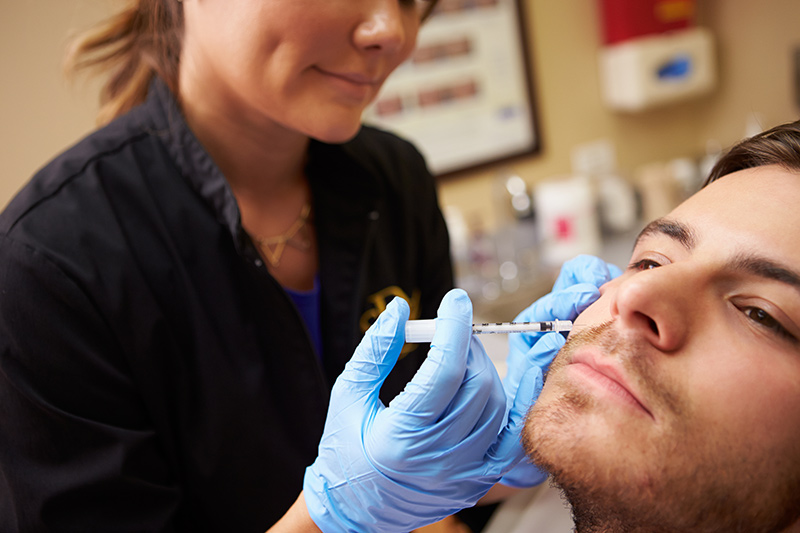
Orthodontics
Sometimes a patient’s TMD can be traced to an incorrect bite or positioning of the jaw that is causing undue stress to the bone structures, ligaments, and muscles. In these situations, it may be appropriate for a prosthodontist to apply orthotic treatments. These treatments can include any number of dental interventions with the goal of balancing a patient’s bite and reducing stress on the TMJs.
Conventional dental procedures used to treat TMD include dental crowns and dental bridges to balance the bite, occlusal adjustments which involve grinding teeth to an appropriate size and shape, and orthotic splints used to adjust a patient's bite permanently.
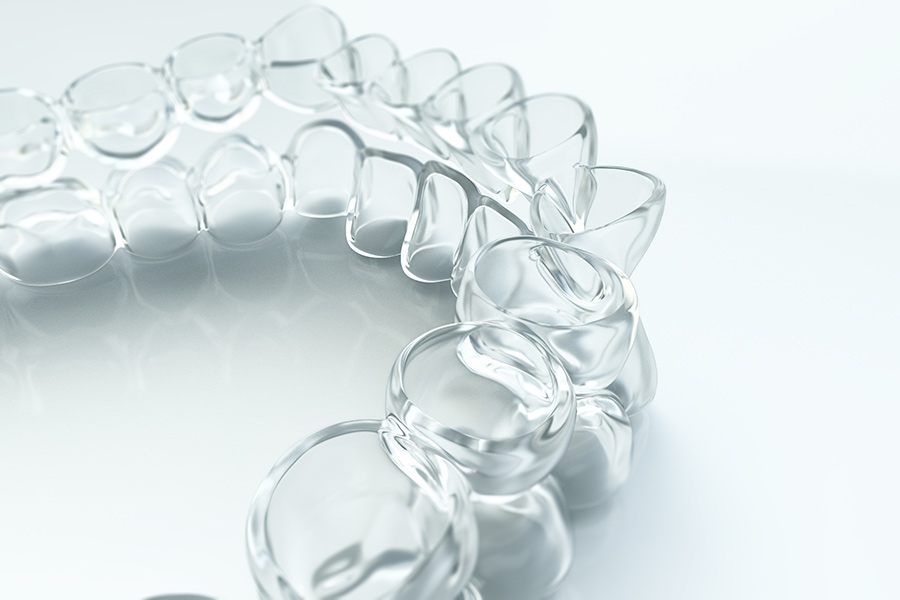
Surgery
In extreme cases of TMD or cases of the disorder arising from a traumatic injury to the face, mouth, or jaw structures, surgery may be needed. An oral and maxillofacial surgeon can perform arthroscopic surgery to remove scar tissues and thickened cartilage, reshape the jaw bone, reposition discs, or flush, or lavage, the afflicted joint until clean. Anti-inflammatory medicines can also be inserted arthroscopically. In extreme cases, a total jaw replacement surgery may be necessary.
Generally speaking, surgery should always be the last resort. Committing to surgery does not guarantee results as the underlying causes of TMD are themselves not fully understood. Surgery is typically only required for patients with debilitating TMD that is affecting their quality of life.
Remember, with a reliable diagnosis by a trained professional, consistent self-care, orthodontic help in less mild cases, and time, the vast majority of TMD cases can be comfortably controlled and eventually cured.
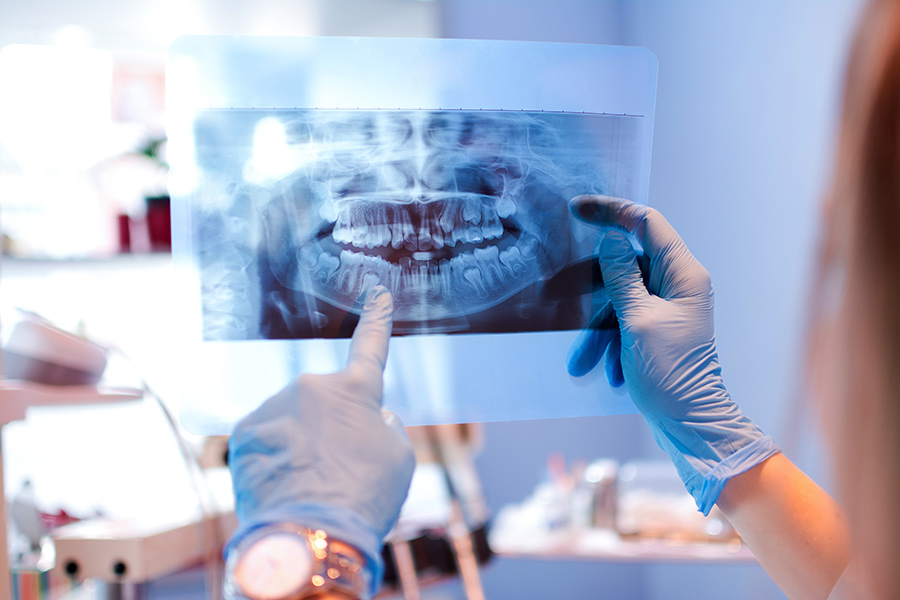
Concerned about TMJ or TMD?
Look no further than respected and well-known Prosthodontist, Dr. Reza Khazaie of Willow Pass Dental Care in Concord, CA. Willow Pass Dental Care is known as one of the leading dentists in Concord, CA and provides a broad range of family dental care, including dental crown procedures, dental implants, and a friendly and professional environment you can call home.
Schedule a consultation today by calling 925-326-6114 or complete our online form below to schedule an appointment.
